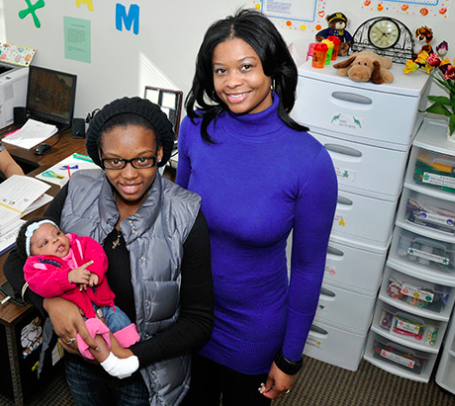Sexual minority youth natural mentoring experiences differ from those of heterosexual youth
Johnson, D., Gastic, B. (2015). Natural Mentoring in the Lives of Sexual Minority Youth. Journal of Community Psychology, 43(4), 395-407. https://doi.org/10.1002/jcop.21692
Summarized by Karina De Andrade
Notes of Interest:
- Sexual minority youth were less likely than heterosexual youth to identify family members as mentors, and more likely to identify school adults as mentors.
- Sexual minority youth were more likely to be mentored, but on average meet their mentors nearly a year later than heterosexual youth.
- Male sexual minority youth were more likely than male heterosexual youth to have female natural mentors, suggesting that same-sex mentor pairings in formal programs may not always make sense for sexual minority youth.
Introduction (Reprinted from the Abstract)
This retrospective, mixed method study examined the natural mentoring experiences of a national sample of lesbian, gay, and bisexual youth from the National Longitudinal Study of Adolescent Health. Sexual minority youth were found to be less likely than heterosexual youth to have family members as mentors, but more likely to be mentored by school adults. A paradox was noted wherein sexual minority youth, while more likely to be mentored, miss out on the cumulative benefit of mentoring since they meet their mentors almost a year later than heterosexual youth. Findings also suggest that the prevailing same-sex pairing of mentors and mentees in formal mentoring programs warrants re-examination for sexual minority youth, as male sexual minority youth were found to be more likely to have female natural mentors than heterosexual male youth. Implications for mentoring programs with a particular focus on positive youth development for sexual minority youth were also discussed.
Implications (Reprinted from the Discussion)
These findings present some implications for mentoring programs that seek to foster positive youth development for sexual minority youth. First, a paradox is revealed wherein sexual minority youth are more likely to be mentored, but meet their mentors at a much later time than heterosexual youth. This presents what we call a “lost time hypothesis,” whereby sexual minority youth are missing a crucial year of mentoring and therefore a compromised cumulative benefit of mentoring. This is largely due to the fact that, for many sexual minority youth (and adults), familial trust and relationships are damaged and often forever changed by insensitivity, indifference, or intolerance about one’s sexual orientation. These fissures can be devastating as they betray the personal and societal expectations about the unconditional primacy of blood relations. Thus, for sexual minority youth, families can pose risk factors that many other youth have the good fortune never to experience or know are possible. The environmental stressors of navigating unsupportive or hostile family and living situations, magnified by the delayed presence of a natural mentor, can require a level of resilience and grit to overcome that takes years to develop.
To access this article, click here.












